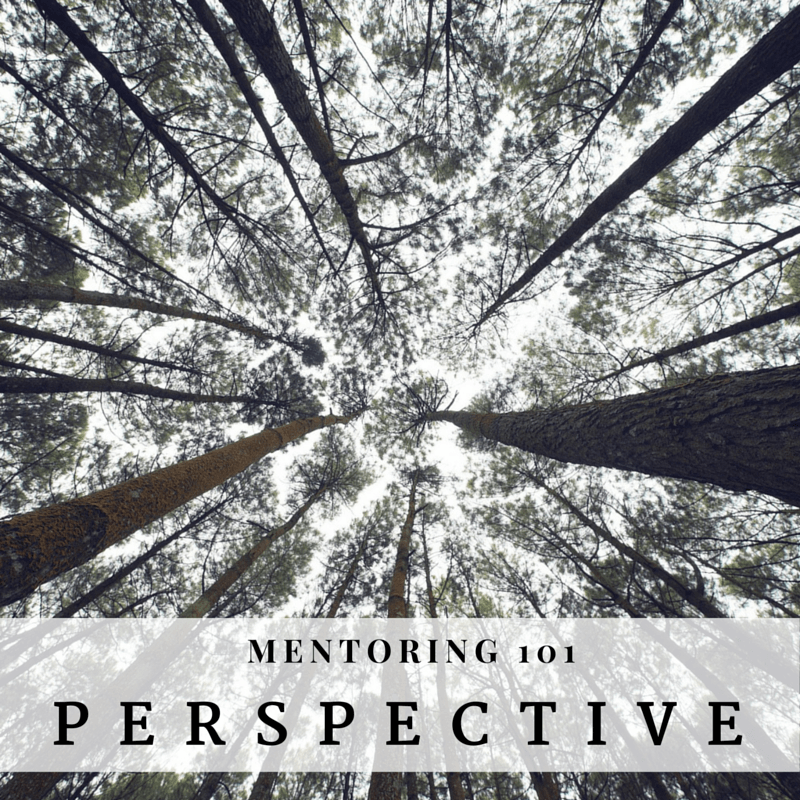
This week, I had the privilege of speaking to a large group of women (and a few men) about mentoring at the Women In insurance Leadership Forum in Chicago.
On the way to WIIL, I was online and received a request for help from a protege of mine. Given that I was on my way to talk about mentoring, I felt the timing was perfect and asked what was going on.
By the time our conversation was done and he was on his way with a fresh perspective, I realized how frequently I’m asked to validate someone’s perception of another individual’s action or remark. I am not sure about other mentors, but for me, this is a pretty common occurrence.
I thought I’d share my approach when I’m presented with these sorts of dilemmas. For those of you who are mentors, maybe these will come in handy the next time someone comes to you with a similar challenge. For anyone who finds themselves in a situation they are getting bent about and wonder if they have the right of it, read on. Maybe this will help.
It’s all about me. It’s nothing about me.
We are each the center of our own universe. All 7+ billion of us. However, we are rarely, if ever, the center of someone else’s.
When we are the center of our universe, we frame everyone else’s actions and words through the lens of how it made us feel or how we would have meant the action or remark.
When someone I have a relationship with – either as a mentor or friend – and they are concerned about someone’s actions or a remark, I always start with some simple questions.
What do you know of this individual?
Is the way you have interpreted the action/words aligned to what you know? Does this seem out of character? If so, that’s a sure fire sign you have misinterpreted the intent.
Do you think he/she was trying to be malicious or they generally don’t have good intentions?
If the answer is yes, which should be pretty rare if you are spending time with them, avoid them as much as possible and try not to let it get to you. If, however, the answer is no, then why are you getting bent? Give the individual the benefit of the doubt. The likelihood is very high, based on the answer to this question, that the individual doesn’t even realize he/she said or did something that is vexing you.
Is he/she generally open and easy to talk to?
If yes, then why not ask? Not in an attacking way, but ask for clarification. There may be something you are not aware of, that if you had that last piece of information, you would realize there was no harm meant and/or might clear up your misinterpretation.
There can be more than one truth
The next step, after asking some questions, is to provide potential alternative meanings or context that could be true but may not have been considered.
Because I’m not in the center of the issue, I can provide a different perspective. This is a key benefit of having a friend, mentor or other individual to talk to BEFORE responding to words or actions that are stressing you.
If you are feeling unsure about your work, and someone makes the remark “that’s nice” about something you’re working on, you may read that in many ways. They could very well mean it’s nice. However, because you are already sensitive about the potential of being “caught out” it may be interpreted as sarcastic or demeaning.
So often people are caught up in their own universe that they have little time to be aware of and try to undermine anyone else’s. It is possible, but the population at large is not hateful and spiteful. If it were, there’d be no reason to get up and interact with anyone each day.
Hearing alternative “truths,” and recognizing that our truth says more about us than the other person, can go a long way to providing the perspective needed to get to the next step…action.
Is this still worth action?
The last step is to make suggestions on how to approach the situation. By this point, the action could be inaction. The “action” would be accepting that any action would be detrimental, is no longer appropriate, etc. If some action is required, the key is having a constructive way to address it.
Whatever action is taken, making sure it accounts for the perspective of the other individual and a possible misinterpretation of intent is key. Jumping to conclusions is a surefire way to risk a relationship.
Role play
A co-worker regularly makes comments that hurt your feelings. You’ve asked me what you should do, because you’re moving from hurt to anger and it’s impacting your ability to work with her.
My first question is if this woman is mean and spiteful, or generally a nice person. You are shocked that I could think she’s mean, as you genuinely like her, which is why her words are so painful.
Do you think she is trying to be hurtful? Hmmm. Well, probably not. She is usually very nice.
My recommendation is to talk to her in a non-confrontational way. “I know you to be a kind person and I value our relationship. I wanted to share with you that when you say <hurtful words>, it hurts my feelings. I’m sure it is unintentional and I may be misinterpreting what you mean when you say it, but I felt it was important to let you know.”
If she is indeed kind and oblivious to the impact of her words, she will likely be horrified and want to fix the relationship right away. Instead of getting angry and attacking, by sharing what you know of her, and leaving room for misinterpretation, you can move forward with the relationship intact.
If, on the other hand, she really did mean those hurtful things, better to know and use this as an opportunity to begin separating yourself from her. Unless you ask, in a way that leaves an opening for a positive resolution, you’ll be dooming the relationship to a bad ending due to your own hurt feelings or hers.
Take aways
If you are a mentor or friend, advising someone who has perceived a comment or action negatively and is asking you for input:
- Validate the individual’s perspective…each of us has our own reality
- Provide alternative views on how the comment or action may be perceived…our reality may not be the only reality
- Ask about the person…what do we know about him/her and whether negative intent is in alignment with that knowledge
- Is it worth reacting? What will happen if we let it go? Sometimes, you need to consider the source
- If it’s worth reacting, provide constructive ways to ask questions, clarify intent, etc that do not risk relationships worth keeping
If you are the person who is on the receiving end of the comment or action:
- Talk to someone before reacting!
- Think first about what you know of this person before you assume he/she is trying to be malicious or make your life miserable…usually people have their own stuff to worry about and aren’t going out of their way to upset you
- Consider constructive ways to address any concerns or ask for clarification
- Remember our views are not the only possibilities as to what the person meant
What other advice would you provide someone who is unsure how to respond to an action or remark from another person? I would appreciate any ideas and feedback you might share to keep the conversation going.








